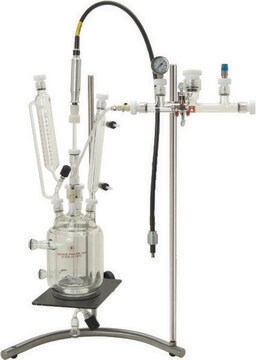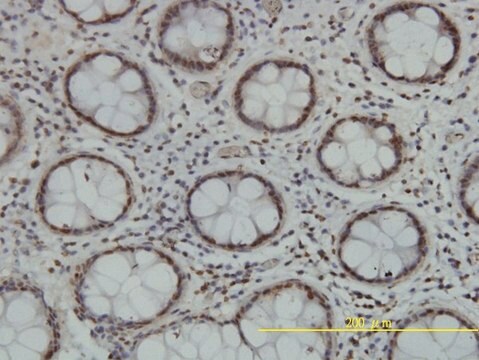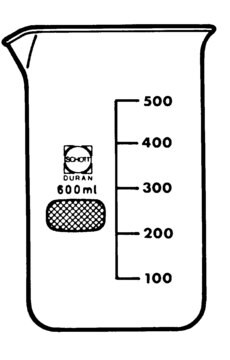WH0008658M1
Monoclonal Anti-TNKS antibody produced in mouse
clone 1A2, purified immunoglobulin, buffered aqueous solution
Sinônimo(s):
Anti-PARP5A, Anti-PARP5a, Anti-PARPL, Anti-TIN1, Anti-TINF1, Anti-TNKS1, Anti-tankyrase, TRF1-interacting ankyrin-related ADP-ribose polymerase
About This Item
Produtos recomendados
fonte biológica
mouse
Nível de qualidade
conjugado
unconjugated
forma do anticorpo
purified immunoglobulin
tipo de produto de anticorpo
primary antibodies
clone
1A2, monoclonal
forma
buffered aqueous solution
reatividade de espécies
human
técnica(s)
immunohistochemistry (formalin-fixed, paraffin-embedded sections): suitable
indirect ELISA: suitable
western blot: 1-5 μg/mL
Isotipo
IgG2aκ
nº de adesão GenBank
nº de adesão UniProt
Condições de expedição
dry ice
temperatura de armazenamento
−20°C
modificação pós-traducional do alvo
unmodified
Informações sobre genes
human ... TNKS(8658)
Descrição geral
Imunogênio
Sequence
TERKEGEVAGLDMNISQFLKSLGLEHLRDIFETEQITLDVLADMGHEELKEIGINAYGHRHKLIKGVERLLGGQQGTNPYLTFHCVNQGTILLDLAPEDKEYQSVEEE
Ações bioquímicas/fisiológicas
forma física
Informações legais
Não está encontrando o produto certo?
Experimente o nosso Ferramenta de seleção de produtos.
Código de classe de armazenamento
10 - Combustible liquids
Ponto de fulgor (°F)
Not applicable
Ponto de fulgor (°C)
Not applicable
Equipamento de proteção individual
Eyeshields, Gloves, multi-purpose combination respirator cartridge (US)
Certificados de análise (COA)
Busque Certificados de análise (COA) digitando o Número do Lote do produto. Os números de lote e remessa podem ser encontrados no rótulo de um produto após a palavra “Lot” ou “Batch”.
Já possui este produto?
Encontre a documentação dos produtos que você adquiriu recentemente na biblioteca de documentos.
Nossa equipe de cientistas tem experiência em todas as áreas de pesquisa, incluindo Life Sciences, ciência de materiais, síntese química, cromatografia, química analítica e muitas outras.
Entre em contato com a assistência técnica







